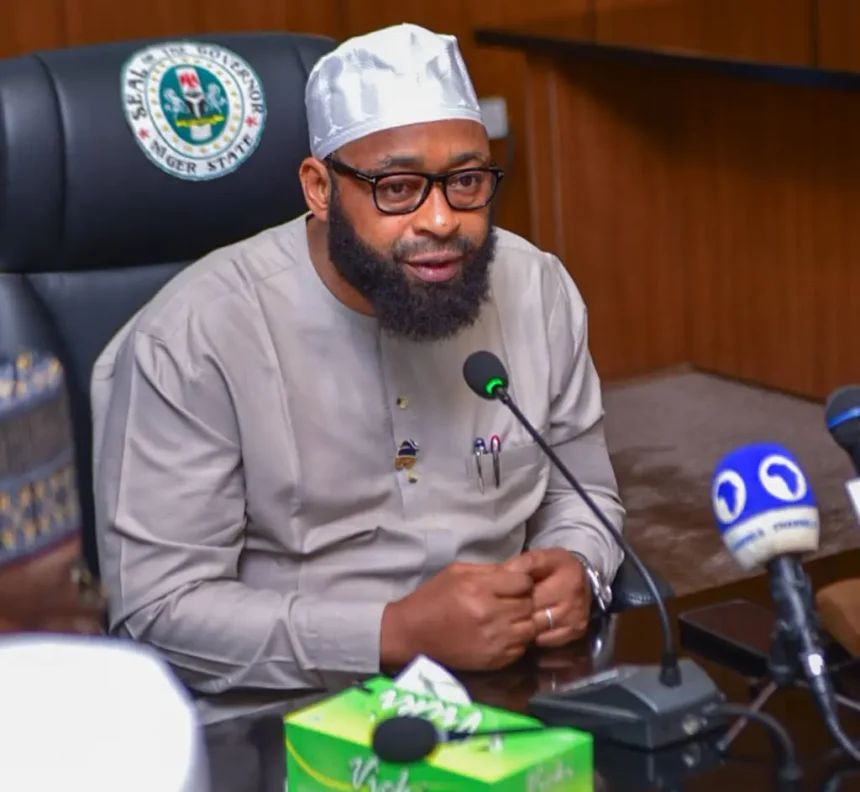Niger State Governor Orders Heavy-Duty Trucks to Avoid Dikko Bridge Following Tragic Tanker Explosion
In the wake of a devastating tanker explosion on Saturday, Niger State Governor, Umaru Bago, has issued a directive banning heavy-duty trucks from using the one-way route through the Dikko Bridge. This follows a horrific incident at Dikko Junction in the Suleja Local Government Area, where the explosion claimed the lives of more than 70 individuals who were attempting to scoop fuel from the overturned tanker.
The explosion, which has been described as one of the most catastrophic incidents in recent memory, has left the state in mourning. The victims, many of whom were on the scene in search of fuel, were caught in the blast, which also sparked widespread fear in nearby communities. Despite the severity of the explosion, Governor Bago reassured the public that surrounding communities were not affected by the explosion itself.
During a visit to the site of the incident, Governor Bago expressed his profound grief over the tragic loss of life and condemned the reckless behavior exhibited by some of the drivers and individuals involved. He emphasized the need for urgent measures to prevent future occurrences of such accidents, calling on all relevant authorities to act swiftly and decisively.
Governor Bago’s Immediate Measures to Prevent Future Accidents
Governor Bago’s directive includes a ban on vehicles coming from the Maje direction from passing through Dikko Bridge. Instead, these vehicles will be required to take an alternate route beneath the bridge and make a U-turn to continue their journey. This change in traffic flow is aimed at preventing further accidents at the site and is part of the governor’s larger plan to improve road safety in the area.
To ensure that the new traffic regulations are adhered to, Governor Bago has called on the Federal Road Safety Corps (FRSC) sector commander to deploy a detachment of officers to the area to monitor compliance. He also urged transport unions to collaborate with the FRSC to ensure the smooth implementation of these new regulations and to help enforce discipline among drivers.
Governor Bago emphasized that the recent spate of accidents in the area can be attributed to delays in the completion of the Minna-Suleja road project. He has made an appeal to the federal government to expedite the ongoing project, which he believes will alleviate traffic congestion and reduce the risk of accidents on that stretch of road.
Acknowledging the Swift Response of Emergency Agencies
The governor took time to commend the swift and efficient response of various emergency services in the aftermath of the explosion. He praised the Niger State Emergency Management Agency (NSEMA), the Fire Service, the Federal Road Safety Corps (FRSC), and the National Union of Road Transport Workers (NURTW) for their prompt action in evacuating victims and managing the aftermath of the disaster.
In particular, Governor Bago highlighted the efforts of the emergency teams in swiftly containing the situation and providing immediate assistance to the injured. He acknowledged the logistical challenges faced by these agencies but praised their commitment to mitigating further damage and providing relief to those affected by the explosion.
State Support for Injured Victims
As part of the state’s ongoing efforts to support the victims of the explosion, Governor Bago announced the redeployment of doctors from hospitals in Minna to assist in the treatment of those injured in the incident. Many of the injured victims are currently receiving medical care at the Suleja General Hospital, and the governor’s decision to deploy additional medical personnel underscores the state’s commitment to providing necessary medical support during the crisis.
The governor’s move to bolster medical resources at the Suleja General Hospital reflects the urgency of the situation and the state’s determination to offer the best possible care to those affected. He further emphasized the need for continued support for the families of the victims, ensuring that their needs are met in the aftermath of the tragedy.
The Push for Road Safety Reforms in Niger State
Governor Bago’s directive and the measures he has announced come as part of broader efforts to address road safety issues in Niger State. The Dikko Junction, where the tanker explosion occurred, has long been a site of concern due to its high traffic volume and the frequency of accidents in the area. The governor’s call for an overhaul of traffic regulations and his request for federal intervention in road projects signal his administration’s commitment to improving road safety and reducing accidents across the state.
By taking proactive steps such as the deployment of additional security personnel and the modification of traffic routes, Governor Bago is seeking to mitigate the risk of further incidents. He has also underscored the importance of collaboration between federal and state authorities, transport unions, and emergency response teams to achieve lasting solutions to the road safety challenges faced by the state.
Looking Ahead: Enhancing Safety and Preventing Further Tragedies
The tragic tanker explosion at Dikko Junction has highlighted the urgent need for comprehensive road safety reforms in Niger State. While the immediate response from emergency services has been commendable, the long-term solution lies in addressing the underlying infrastructure and safety issues that continue to pose a risk to drivers and residents alike.
Governor Bago’s directive to prevent heavy-duty trucks from using the Dikko Bridge is a step in the right direction, but it is clear that more work is needed to overhaul the state’s road safety framework. The completion of the Minna-Suleja road project, the enforcement of stricter traffic regulations, and the continued collaboration between all relevant agencies will be critical in preventing future tragedies.
As the state continues to mourn the loss of more than 70 lives in this devastating incident, Governor Bago’s leadership in addressing the aftermath and implementing safety measures will be crucial in rebuilding public trust and ensuring that such incidents are not repeated. The focus now is on providing care for the injured, supporting the families of the victims, and making lasting changes to the state’s road safety infrastructure.
Conclusion: A Call for Collective Action and Accountability
The tragedy at Dikko Junction serves as a stark reminder of the dangers associated with reckless driving, fuel siphoning, and poor road infrastructure. While Governor Bago’s immediate response has focused on mitigating the damage and providing relief, the broader issue of road safety in Niger State remains a pressing concern. Through a combination of improved traffic regulations, federal intervention in road projects, and better coordination among emergency services, there is hope that the state can work toward a safer and more secure transportation system for all its residents.




